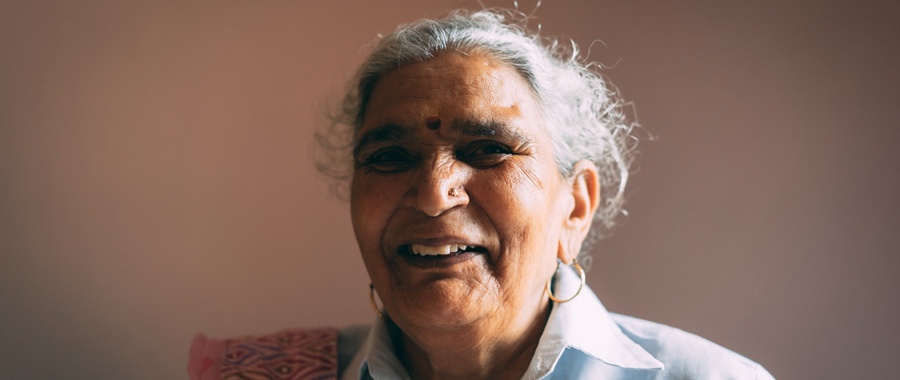The Bahá’í teachings encapsulate a profound appreciation for the intrinsic worth of every individual, irrespective of their age. This principle underpins a critical aspect of human relationships and societal structures, fostering an ethos of respect and empathy that transcends generational divides. With age often serving as a divisive factor in many cultures, the Bahá’í perspective offers a transformative lens through which to view the potential and contributions of individuals, regardless of their chronological milestones.
At the very foundation of Bahá’í thought lies the recognition of the oneness of humanity. This principle asserts that all people, without exception, are mirrors reflecting the Divine attributes. Consequently, valuing individuals based on their age becomes a pretext for misunderstanding the true nature of communal interdependence. The reverence offered to all ages—children, youth, adults, and the elderly—invites a holistic approach in which each stage of life contributes uniquely to the tapestry of society.
The phenomenon of ageism remains prevalent in contemporary discourse. Yet, the Bahá’í community actively counters this by emphasizing that the acquisition of wisdom is a gradual journey that spans a lifetime. As individuals traverse the spectrum of experience, they accumulate insights that are often invisible to those who dismiss them solely based on their age. The insights of the elderly, for example, become particularly invaluable as they possess a wealth of experiences that can inform and shape the perspectives of younger generations.
Moreover, the Bahá’í teachings advocate for an education system that acknowledges and nurtures the varied capabilities of individuals across all ages. It is suggested that education is not limited to formal settings, but rather can occur in informal, experiential contexts, where youthful curiosity and the seasoned wisdom of elders converge. Such environments promote intergenerational dialogue, fostering mutual learning and a reciprocal exchange of knowledge. This collaborative approach not only enhances learning outcomes but also reinforces societal unity.
One of the core tenets of Bahá’í teachings is the importance of service to humanity. This service can manifest differently across generations. Younger individuals may channel their energy into innovative initiatives, while older individuals may offer guidance based on their lived experiences. By aligning the strengths of each age group, communities can create more holistic solutions to the challenges they face. This synthesis underscores the notion that age should not segregate but rather unite individuals across all walks of life in pursuit of common objectives.
Furthermore, the Bahá’í perspective insists on the crucial role of the family unit as a microcosm of society. Within families, the nurturing of children, the guidance of parents, and the wisdom of grandparents forge an interconnected network of love and support. Families, seen through this lens, reflect the larger societal fabric where respect and care across generations provide a model for communal harmony. When individuals within this unit are valued—and their contributions acknowledged—society cultivates a more compassionate ethos.
The act of valuing individuals regardless of age also resonates deeply within the Bahá’í principle of justice. Age should not factor as a criterion for judgment or treatment. Each person has the right to be honored and respected, thus affirming their dignity as human beings. By confronting ageism and fostering inclusivity, a just society emerges—one that recognizes the proximate role of every individual in the communal experience.
A crucial aspect of valuing individuals is the nurturing of a positive self-identity. Each age group often grapples with unique challenges relating to self-esteem and societal perceptions. Children may seek validation, youth may strive for recognition, adults may pursue fulfillment, and the elderly may wish for respect. The Bahá’í teachings suggest that promoting an appreciation for the distinct value of each age can alleviate these burdens. When society upholds the sanctity and potential of all ages, individuals experience a holistic sense of belonging and worth.
The Bahá’í writings encourage ongoing reflection about the roles played by individuals at various ages. It is important to cultivate practices that not only acknowledge these roles but also celebrate them. The result is a paradigm shift that transforms how society views aging. Rather than seeing it as a decline, aging can be understood as an evolution toward greater wisdom and insight. This awareness fosters a culture of appreciation, where individuals across the age spectrum are interconnected threads within the societal weave.
Ultimately, the teachings concerning valuing all people regardless of age embody a call to action for communities worldwide. To operationalize these principles, it is imperative to foster environments that are inclusive and nurturing—where the voices and contributions of every age group are amplified. It is not merely a theoretical ideal but a practical mandate that encourages collective growth and understanding.
As society navigates the complexities of age and human interaction, the Bahá’í insights stand as a beacon of hope. By prioritizing intergenerational relationships and embracing the unique attributes of each life stage, communities can cultivate a spirit of unity that transcends time. The thriving of society lies in recognizing that every person—regardless of age—holds a key to the collective journey of humanity, one that should be cherished and nurtured with utmost sincerity.
